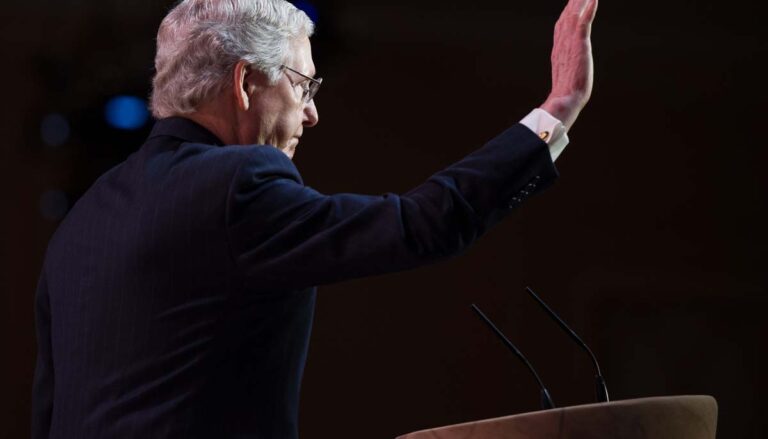Senate Minority Leader Mitch McConnell has relented in his battle with Majority Leader Chuck Schumer over the terms of their power-sharing agreement. While Democrats and Republicans are split 50-50 in the chamber, Vice President Kamala Harris is the tie-breaking vote in the chamber, giving Democrats the slimmest of margins.
McConnell was holding out to not allow the Senate to organize into its various committees, denying Democrats the ability to take control of the chamber. On Monday night, Schumer told reporters “We are not letting McConnell dictate how the Senate operates.” Finally, when a pair of moderate Democrats once again reiterated their lack of desire to see the filibuster rule altered, McConnell relented and allowed the Senate to push ahead with organization.
“With these assurances, I look forward to moving ahead with a power-sharing agreement modeled on that precedent,” McConnell stated Monday evening.
What Assurances?
The issue for the minority leader is that Democrats gave no assurances that they would not touch the filibuster rule. Broadly speaking, the filibuster is a bizarre loophole in Senate procedural rules that has arisen because of the lack of a “previous question” rule in the Senate. Vice President Aaron Burr suggested the rule be tossed out over 200 years ago, and for roughly a century the Senate didn’t even realize what this had created.
However, since the Senate has no easy way of ending discussion over a topic and moving on to votes, a minority party can stifle most forms of legislation they don’t like. All they need to do is announce that they plan to filibuster and suddenly it requires 60 votes to move past their objections. This has led to the Senate stagnating and stopping the chamber from passing any meaningful legislation for decades.
Ending the Filibuster
There has been widespread forecasting that Senate Democrats might move to end the filibuster in order to open up their sweeping, ambitious legislative agenda. However, this has been met with howls of disapproval from Republicans, many of whom seem to hope to transition back into the role of partisan obstructionist.
There have been many calls from Republican senators for a return to bipartisan lawmaking. Democrats are certain that their agenda, which includes another round of stimulus checks and more robust aid for families struggling during the pandemic, would be met with resistance, despite these calls, however.
Government scholars are united in one thing: ending the filibuster would make the Senate more able to actually govern. Democrats would just need to be okay with the eventuality that Republicans could seize control of the chamber in the future and pass their own agenda.





